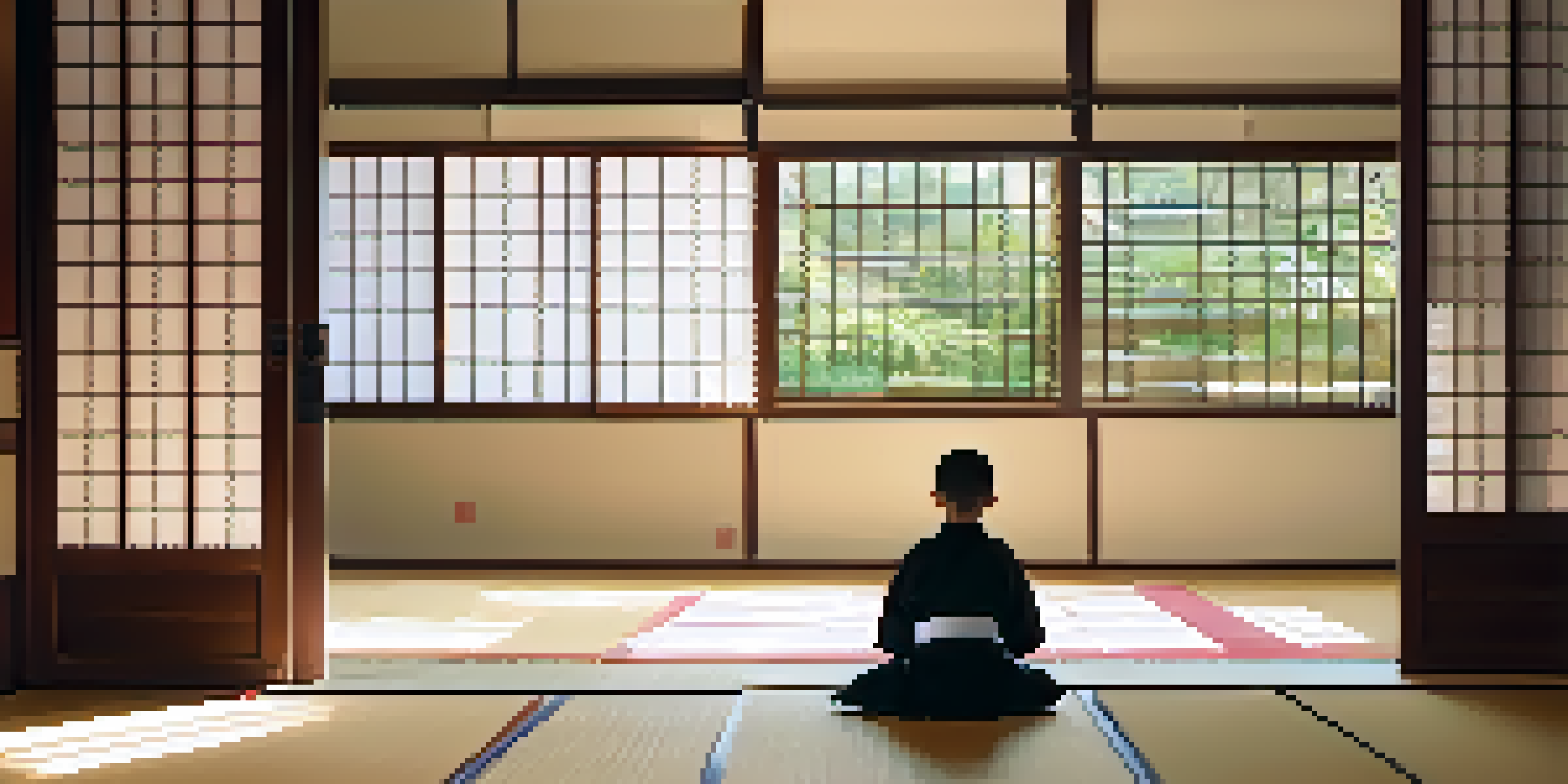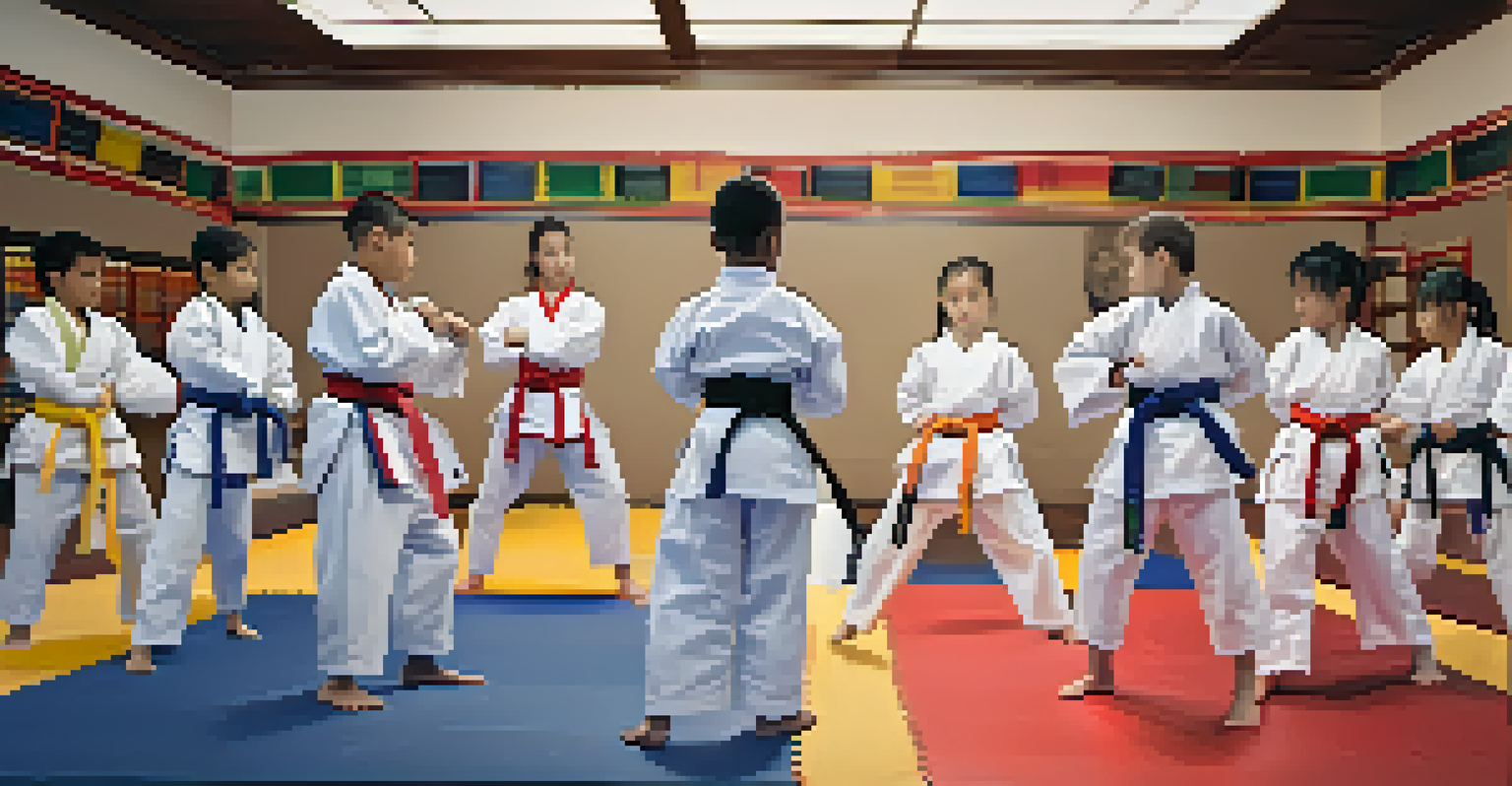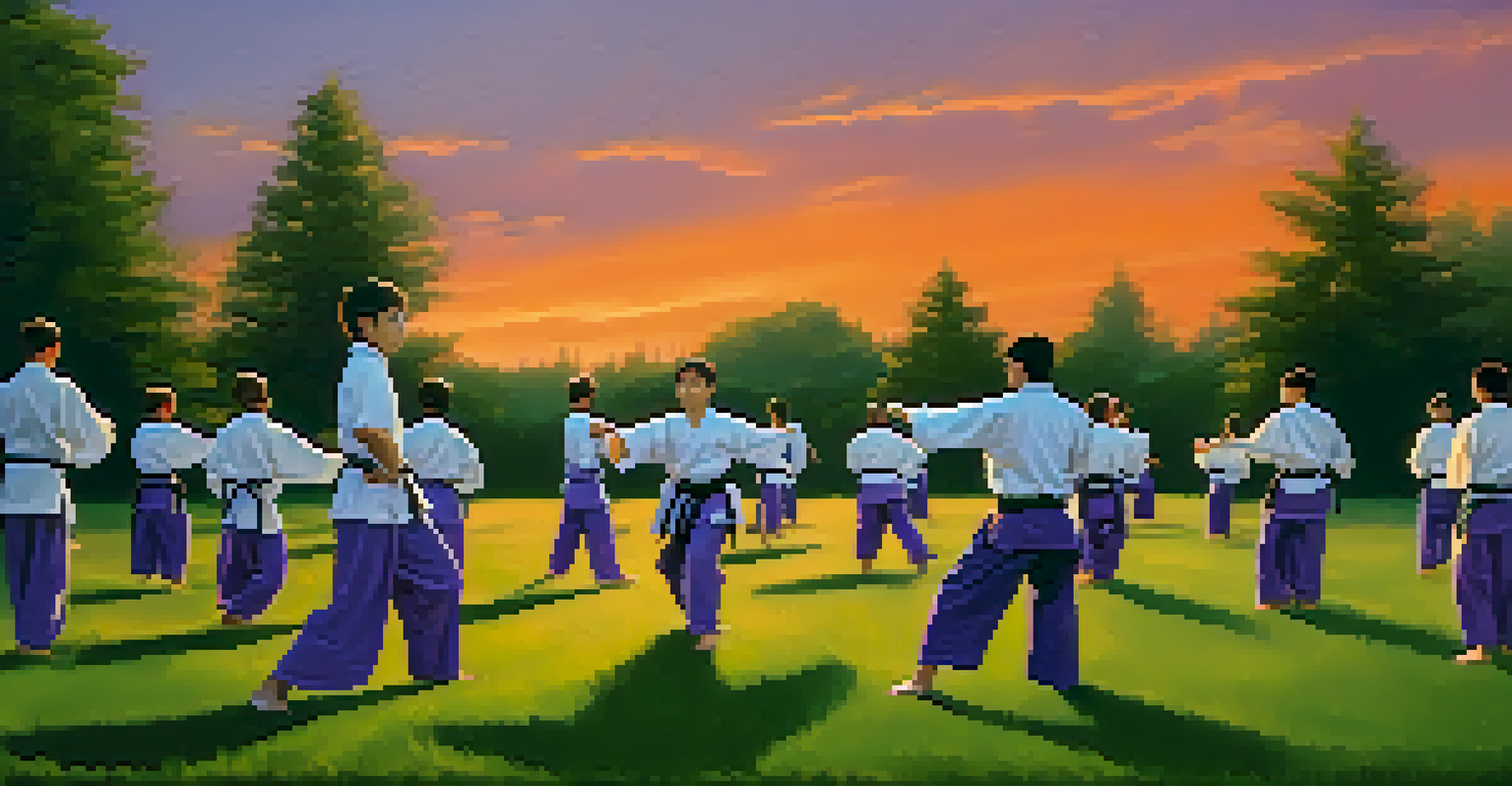Self-Control in Martial Arts: Essential for Youth Leadership

Understanding Self-Control in Martial Arts
Self-control is a fundamental principle in martial arts, emphasizing the ability to manage one's emotions, thoughts, and actions. This discipline is not just about physical prowess; it's a mental skill that requires practice and dedication. For young martial artists, learning self-control means they can respond to challenges with composure rather than impulse.
Self-control is the ability to regulate one's emotions, thoughts, and behaviors in the face of temptations and impulses.
In martial arts, self-control is tested during training sessions, competitions, and even in everyday life. Students learn to pause and think before reacting, which helps them navigate conflicts more effectively. This ability to regulate one’s behavior is crucial, especially for youth who are still developing their identities and coping mechanisms.
Practicing self-control in martial arts lays the groundwork for personal growth. It teaches youth that their actions have consequences, encouraging them to make thoughtful decisions both inside and outside the dojo. Over time, these lessons build resilience and confidence, empowering young leaders to face obstacles head-on.
The Impact of Self-Control on Leadership Skills
Self-control is intricately linked to effective leadership. Young individuals who practice martial arts often find that their ability to manage themselves translates into better leadership qualities. They learn to set goals, remain focused, and inspire others by modeling disciplined behavior.

By cultivating self-control, young martial artists develop essential traits like accountability and reliability. When they commit to a training regimen or a team, they understand the importance of following through, which is a crucial aspect of leadership. These experiences help them build trust with peers and mentors alike.
Self-Control Fuels Personal Growth
Practicing self-control in martial arts empowers youth to make thoughtful decisions, fostering resilience and confidence.
Additionally, self-control enhances communication skills, another vital component of leadership. As young martial artists learn to express their thoughts clearly and assertively, they become more effective at conveying their ideas and motivating others. This growth fosters a sense of community and collaboration among their peers.
Building Discipline Through Martial Arts Training
Martial arts training inherently requires discipline, which directly contributes to self-control. Each session demands focus, respect for instructors, and adherence to techniques, all of which instill a sense of order. This structured environment is pivotal for youth, teaching them how discipline can lead to mastery and achievement.
Discipline is the bridge between goals and accomplishment.
Young practitioners learn to follow routines and set personal benchmarks, reinforcing the idea that hard work pays off. They witness firsthand the correlation between consistent effort and improved skills, which cultivates a growth mindset. This mindset encourages them to embrace challenges rather than shy away from them.
Moreover, the discipline learned in martial arts often spills over into other areas of life, such as academics and personal relationships. Youth who practice martial arts are more likely to approach schoolwork with the same diligence they apply to their training. This cross-contextual application of discipline is invaluable for their overall development.
Emotional Regulation: A Key Component of Self-Control
Emotional regulation is a significant aspect of self-control that martial arts teaches young practitioners. In the heat of competition or during challenging sparring sessions, emotions can run high. Learning to manage these feelings not only enhances performance but also fosters a sense of calm and composure that is essential for effective leadership.
Through techniques such as deep breathing and visualization, martial artists develop tools to handle stress and anxiety. These strategies help them stay focused on their goals, even in the face of adversity. As they master these techniques, they find themselves becoming more resilient in various life situations.
Leadership Skills Through Discipline
Martial arts training instills discipline, enhancing leadership qualities like accountability, focus, and effective communication.
The ability to regulate one's emotions also improves interpersonal relationships. Young martial artists learn to empathize with others and respond thoughtfully rather than react impulsively. This emotional intelligence is a cornerstone of leadership, allowing them to navigate social dynamics with grace and understanding.
Conflict Resolution Skills Gained from Martial Arts
Martial arts training often involves scenarios that require effective conflict resolution. Students learn to assess situations from multiple perspectives and find solutions that minimize aggression while promoting understanding. These experiences are invaluable for young leaders, equipping them with the skills to handle disputes calmly and rationally.
By practicing conflict resolution within a controlled environment, youth gain the confidence to address real-life conflicts. They learn to communicate their needs and listen to others, which is essential for collaborative problem-solving. This ability to mediate effectively is a hallmark of strong leadership.
Moreover, these skills foster a sense of community within martial arts schools. As students support each other in resolving conflicts, they build trust and camaraderie. This collaborative spirit not only enhances their training experience but also prepares them for future leadership roles in any setting.
Setting and Achieving Goals in Martial Arts
Goal-setting is a critical aspect of martial arts training, teaching youth how to establish and pursue their objectives. Whether it's earning a new belt or mastering a complex technique, each goal requires dedication and self-control. This process reinforces the idea that success comes from sustained effort and perseverance.
As young martial artists set goals, they learn to break them down into manageable steps. This approach not only makes the goals seem attainable but also instills a sense of accomplishment as they progress. Celebrating these small victories boosts their confidence and motivates them to tackle larger challenges.
Conflict Resolution and Community
Martial arts teaches youth effective conflict resolution skills, promoting understanding and collaboration among peers.
Furthermore, the experience of setting and achieving goals in martial arts translates to other areas of life. Youth become adept at planning, prioritizing, and executing tasks, skills that are essential for academic and professional success. This ability to set clear objectives positions them as proactive leaders in any endeavor they choose.
The Long-Term Benefits of Self-Control in Youth Leadership
The benefits of developing self-control through martial arts extend far beyond the dojo. Young individuals who cultivate discipline, emotional regulation, and conflict resolution skills position themselves as leaders among their peers. These attributes not only enhance their personal growth but also contribute positively to their communities.
As they mature, the self-control learned in martial arts will serve them in various life situations—from academics to relationships and career choices. They become individuals who can inspire and motivate others, leading by example. This ability to influence those around them is a hallmark of effective leadership.

Ultimately, the journey of self-control in martial arts prepares youth for the complexities of adulthood. With a solid foundation built on discipline and resilience, they are equipped to face challenges with confidence and integrity. Investing in martial arts as a tool for personal development is not just about learning to fight; it's about fostering the leaders of tomorrow.